Search Results
Showing results 441 to 460 of 474

Balloon Kebabs
Source Institutions
In this demonstration, learners observe the effects of density and pressure by attempting to make "balloon kebabs." Learners will try to insert a wooden skewer all the way through an inflated balloon

I Can't Take the Pressure!
Learners develop an understanding of air pressure in two different activities.

What's Hiding in the Air?: Rubber Band Air Test
Learners build devices from rubber bands to test for invisible air pollutants.

Use Clues to Solve an Ice Mystery
Source Institutions
Learners explore the variables that affect the properties of ice and the places where different types of ice are found.
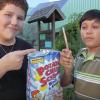
This Spud’s for You
Source Institutions
Use a homemade potato launcher to explore air pressure. This activity includes simple instructions on how to build a homemade propulsion pipe using pipe, a wooden dowel and duct tape.
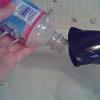
Air Pressure
Source Institutions
In this experiment, learners use a blow dryer and water bottle to observe and record changes in air pressure caused by changes in temperature.
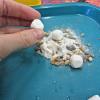
Rocking Changes
Source Institutions
In this earth science activity, learners conduct a series of short experiments to explore how rocks change.
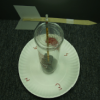
Design and Build a Wind Vane
Source Institutions
In this activity, learners design and build a simple wind vane —one of the oldest kinds of weather tools— and use it to show wind direction.
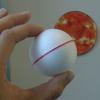
Eclipse: How can the little Moon hide the giant Sun?
Source Institutions
In this activity, learners explore how distance can affect the way we perceive the size of an object.

What is a "Model"?
Source Institutions
In this activity, learners simulate the behavior of the atmosphere.
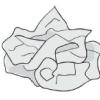
Crumple a Watershed
Source Institutions
Learners gain an intuitive knowledge of the physical aspects of watersheds by creating their own watershed models.
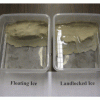
Global Climate Change and Sea Level Rise
Source Institutions
In this activity, learners practice the steps involved in a scientific investigation while learning why ice formations on land (not those on water) will cause a rise in sea level upon melting.
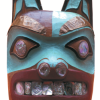
Who Do You Think You Are?
Source Institutions
In this activity, learners use maps to locate the Northwest Coastal region.
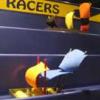
Ships Ahoy!
Source Institutions
The goal of this activity is to design the fastest sailboat or one that carries the most treasure.
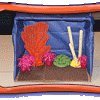
Create a Coral Reef
Source Institutions
Educator Amy O'Donnell from the American Museum of Natural History guides learners to create a diorama of a coral reef.
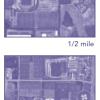
Aerial Imagery
Source Institutions
This activity (on page 2 of the PDF under SciGirls Activity: Earthquakes) is a full inquiry investigation into aerial imagery.
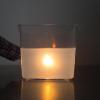
Blue Sky
Source Institutions
In this optics activity, learners explore why the sky is blue and the sunset is red, using a simple setup comprising a transparent plastic box, water, and powdered milk.
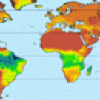
Discovering Rainforest Locations
Source Institutions
In this activity, learners will examine various world data maps to combine the information and predict which areas could be tropical rainforests.
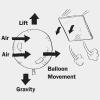
Sky Floater Challenge
Source Institutions
In this design challenge activity, learners make a balloon hover at eye level for five seconds, and then make it move by creating air currents.

The Crayon Rock Cycle
Source Institutions
In this activity, learners use crayons to draw conclusions about rocks and the rock cycle.
